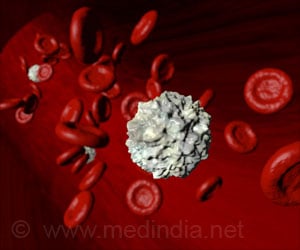In patients with localized, surgically resected, high/ intermediate-risk GIST, interim results of an EORTC intergroup trial have confirmed that adjuvant imatinib impacts short-term freedom from relapse.

Standard treatment for patients with gastrointestinal stromal tumors (GIST), sarcomas of the gastrointestinal wall, is surgery. Neither chemotherapy nor radiation therapy work well for these patients, but EORTC trials had shown that a targeted therapy, the tyrosine kinase inhibitor Imatinib (known as Glivec® in Europe and GleevecTM in the US), is effective in treating patients with advanced GIST. The intergroup randomized controlled phase III EORTC 62024 trial, then, took the logical next step of determining whether Imatinib would also be effective as an adjuvant to surgery in patients with local disease.
Originally, the primary endpoint for this trial was overall survival; relapse-free survival, relapse-free interval, and toxicity were secondary endpoints. In 2009, however, the Independent Data Monitoring Committee, noting the prognostic improvement of patients with advanced GIST, authorized a change in the primary endpoint to Imatinib failure-free survival. Imatinib failure was defined as the time when treatment with a different tyrosine kinase inhibitor began.
The results of EORTC trial 62024 will be presented Monday, 03 June 2013 at an ASCO 2013 Oral Abstract Session by Dr. Paolo Giovanni Casali of the Fondazione IRCCS Istituto Nazionale dei Tumori in Milan and Coordinator of this study.
Between 2005 and 2008, 908 patients with localized, surgically resected, high/intermediate-risk GIST were randomized to Imatinib (400 mg Imatinib daily, 454 patients) or observational (no further therapy after surgery, 454 patients) treatment arms. A total of 835 patients were eligible.
This planned interim analysis was conducted after the occurrence of 115 events according to the Imatinib failure-free survival primary end-point with a significance level of 1.5%. At a median follow-up of 4.7 years, the 5-year Imatinib failure-free survival was 87% in the Imatinib arm and 84% in the observational arm (HR=0.80, 98.5% CI [0.51; 1.26], p=0.23). At three years, relapse-free survival was 84% in the Imatinib arm and 66% in the observational arm, while at five years relapse-free survival was 69% in the Imatinib arm and 63% in the observational arm (p<0.001). The 5-year overall survival was 100% versus 99%. There were 528 patients with high-risk GIST as determined by local pathology, and for these patients the 5-year Imatinib failure-free survival was 79% (Imatinib arm) versus 73% (Observational arm) (p=0.11). Among 682 patients with centrally reviewed pathology, there were 336 patients with high-risk GIST, and the 5-year Imatinib failure-free survival in these patients was 77% (Imatinib arm) versus 73% (Observational arm) (p=0.44). In the Imatinib arm, 17% of the patients stopped early due to toxicity or refusal.
Source-Eurekalert
 MEDINDIA
MEDINDIA




 Email
Email




